I’ve always found that haggling in Turkey is an experience in itself, almost a dance between buyer and seller.
Stepping into the vibrant bazaars and markets of Turkey like a pro requires a unique blend of confidence, respect, and wit.
Here is how to haggle in Turkey, with foolproof tips on bargaining in Turkiye without offending anyone.
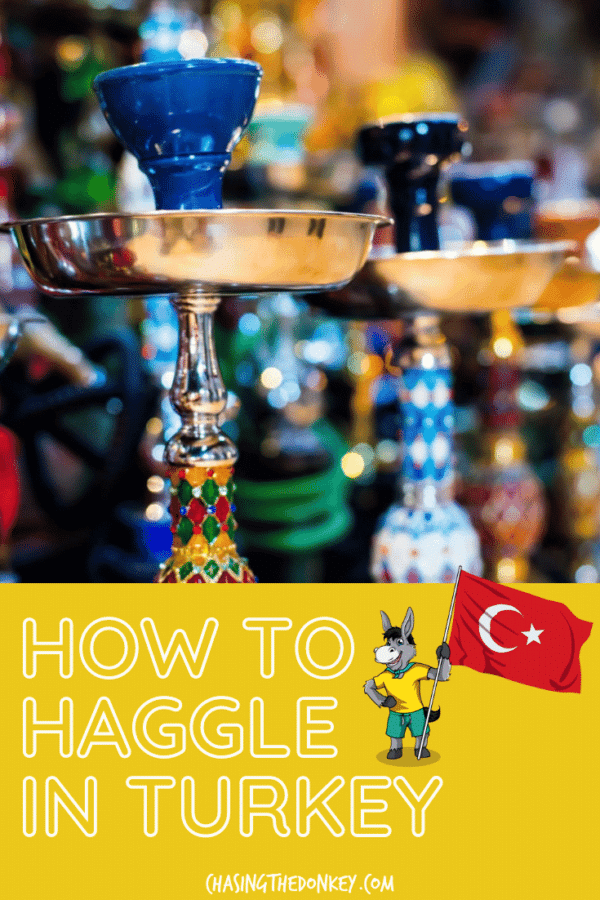
Skip Ahead To My Advice Here!
Haggling In Turkey
You’ll find that negotiation is not just about getting a good deal; it’s also a part of the culture and a way to engage with locals.
From grand bazaars bustling with an array of spices, textiles, and antiques to quaint shops lined with handmade crafts, the art of bargaining is alive and well in this part of the world.
When I first set foot in a Turkish market, I was hesitant, not wanting to seem rude or unaware of local customs. But I quickly learned that haggling is expected and, in fact, a sign of good shopping savvy in Turkey.
You’ll see that prices are often not fixed, and vendors are ready to engage with shoppers who are willing to strike a conversation and negotiate.
Remember, it’s vital to approach with a friendly demeanor – a warm smile and a genuine interest in the items can earn you a discount on the goods you’re eyeing.
On a side note: don’t attempt to haggle in the malls or anywhere that has marked prices on goods
Understanding The Culture Of Bargaining
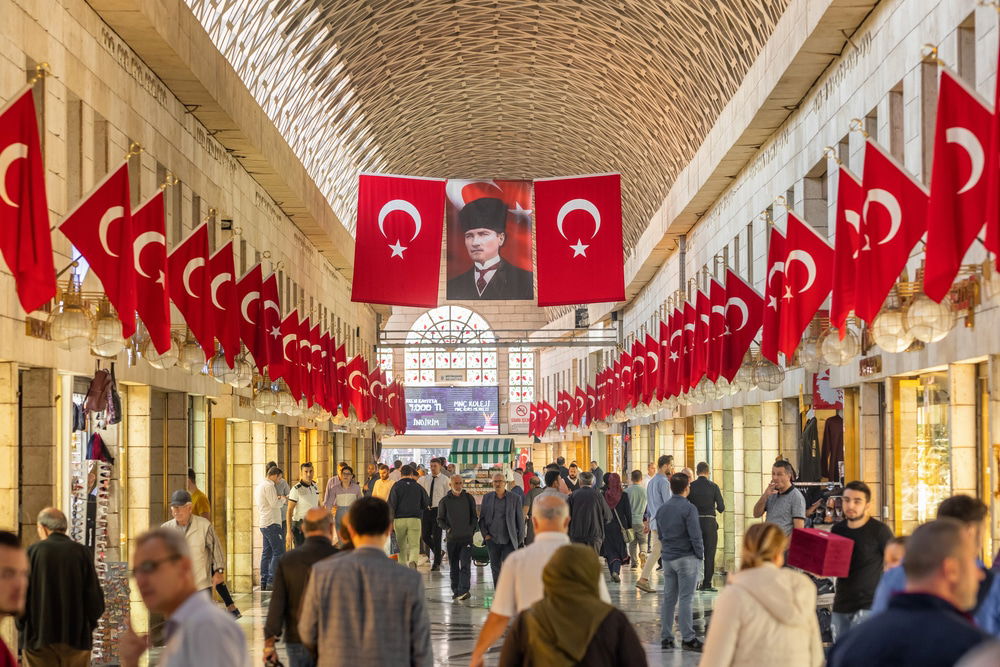
When I visit the bustling markets of Turkey, I embrace the lively art of bargaining.
It’s more than just exchanging money for goods; it’s about the interaction, building rapport, and understanding the local customs.
The Role Of Haggling In Turkish Markets
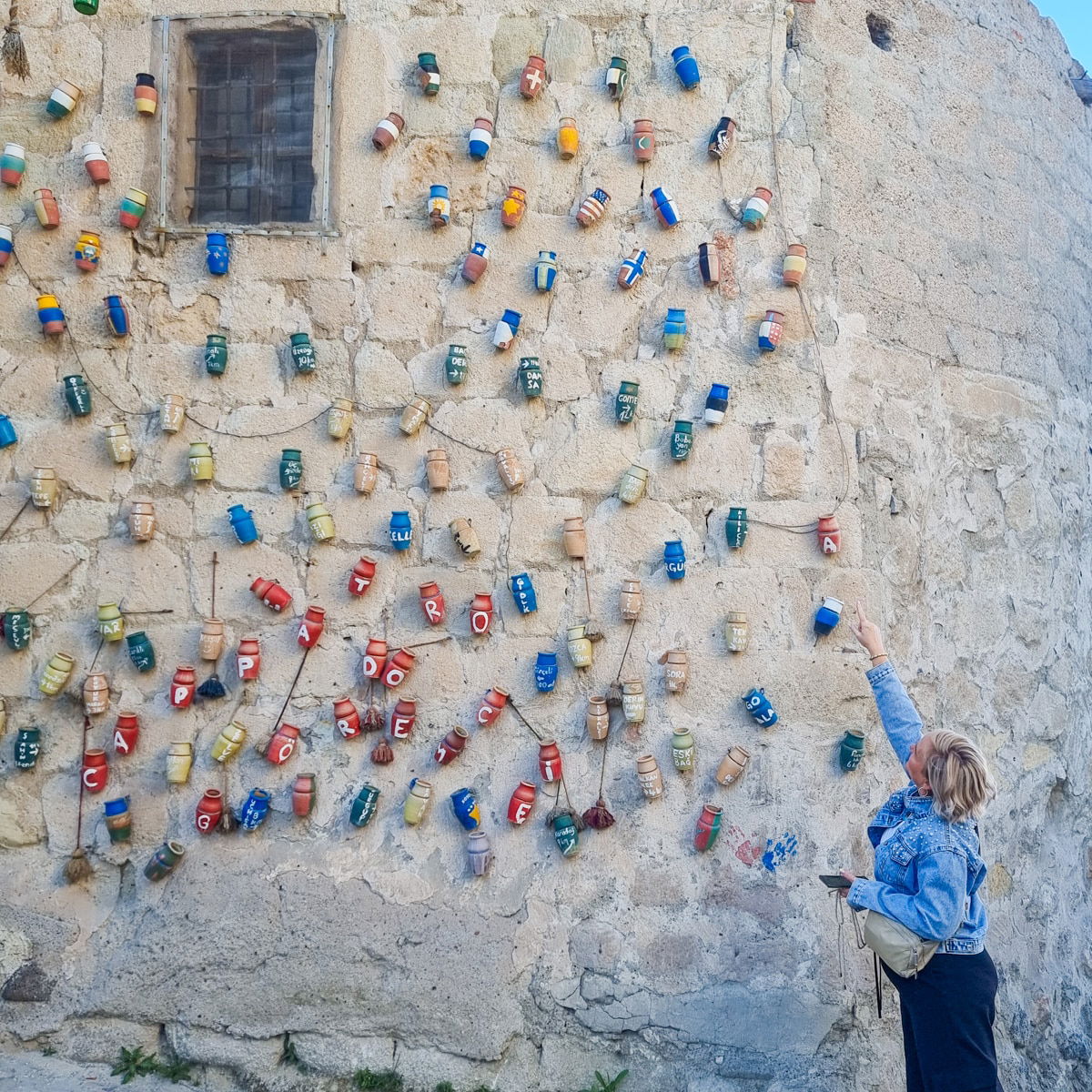
In every souk and bazaar, haggling is more than a mere transaction; it’s a fundamental part of the shopping experience.
It’s where buyers and sellers engage in a friendly dance of offers and counteroffers.
- Building Relationships. The act often opens doors to heartfelt conversations and a deeper understanding of Turkey’s rich culture.
- Expectations. Sellers typically set prices higher in anticipation of negotiation.
- Success in Haggling. A successful haggle isn’t just about getting the lowest price but reaching a satisfying agreement for both parties involved.
Key Cultural Do’s and Don’ts
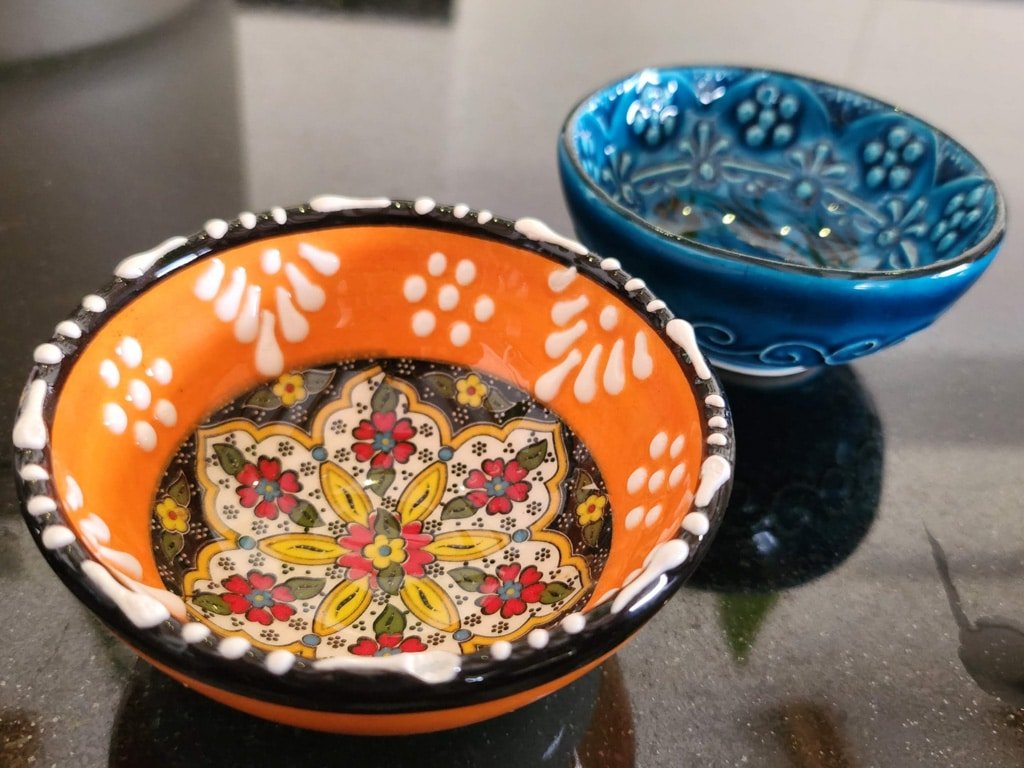
Bargaining is laced with unspoken rules and etiquette. Here’s a brief rundown to guide you:
Do
- Smile and be polite. This sets a positive tone for the interaction
- Start low. Open with an offer well below the asking price; you can always go up
- Take your time. Patience is key in reaching a mutually agreeable price.
Don’t
- Be disrespectful. Never show disrespect or make negative comments about the goods.
- Act too interested. If you appear too interested, the seller might not lower the price.
- Feel pressured. You’re under no obligation to buy. If the price isn’t right, it’s okay to walk away.
Preparation Before You Haggle
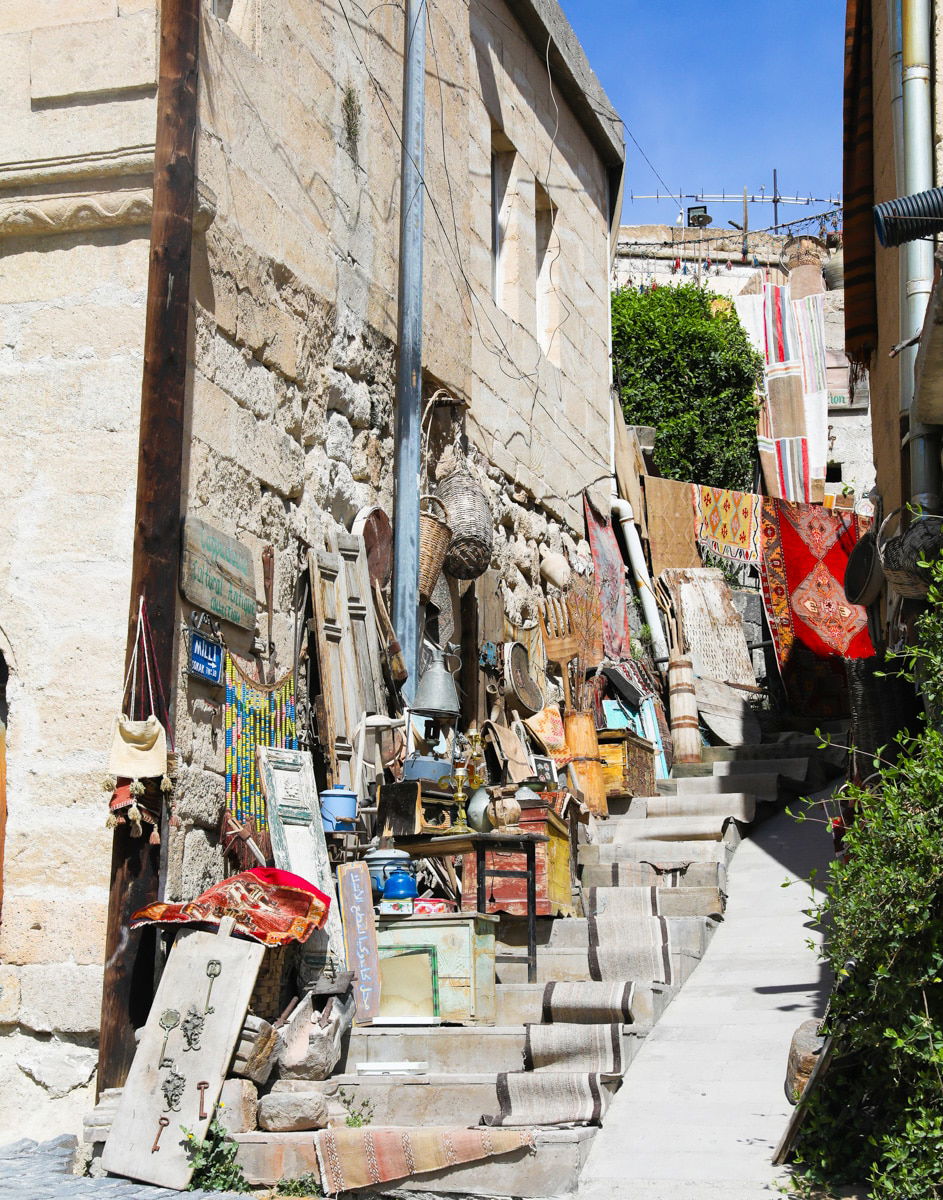
When I head to Turkey’s markets, I like to feel ready to negotiate like a seasoned pro.
It’s not just about being bold, it’s about being smart too. Here are a few things I make sure to do before diving into the exciting world of haggling.
Learn Basic Turkish Phrases

The first trick up my sleeve is a handful of Turkish phrases. Locals appreciate it when I make an effort to speak their language, and it can often lead to friendlier negotiations and better prices. I always learn at least the following:
- Merhaba (Hello)
- Teşekkür ederim (Thank you)
- Ne kadar? (How much?)
- Pahalı (Expensive)
- Daha ucuz olur mu? (Can it be cheaper?)
Know The Price Of Items
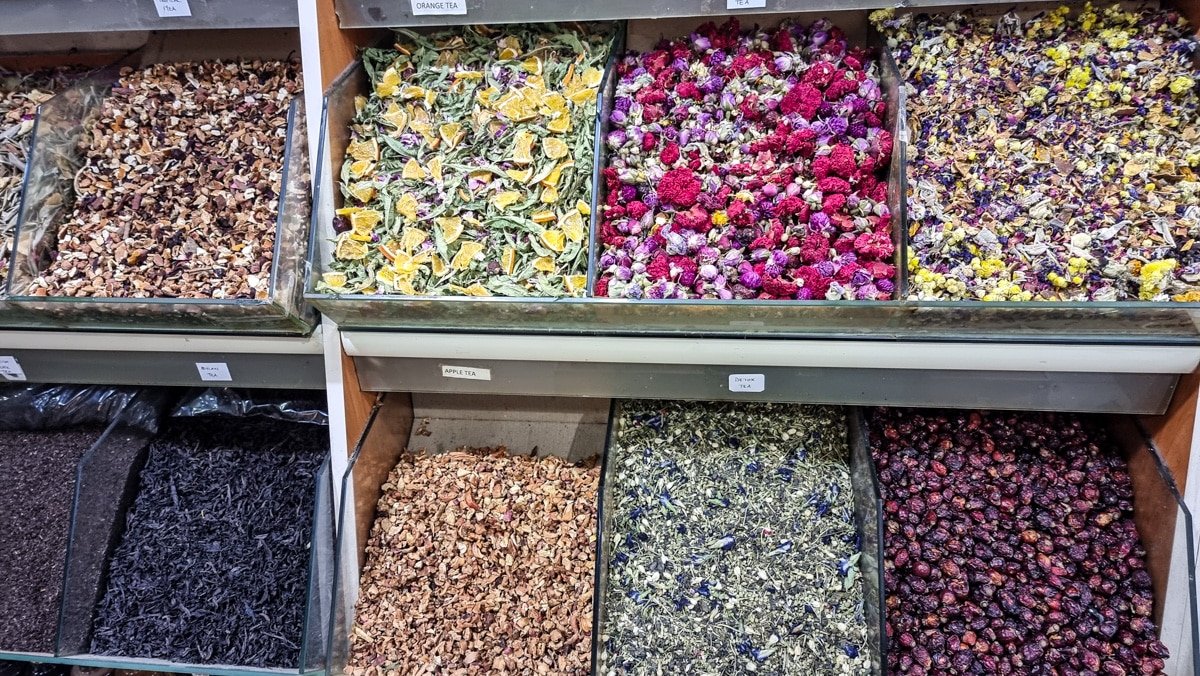
I do my homework on the typical costs of items to avoid being overcharged.
I look up the average prices for everyday items like textiles, ceramics, and spices. This gives me a solid starting point when discussing prices.
I also keep in mind the quality of the item, as handmade goods will naturally cost more than mass-produced ones.
Timing Your Visit To The Shop
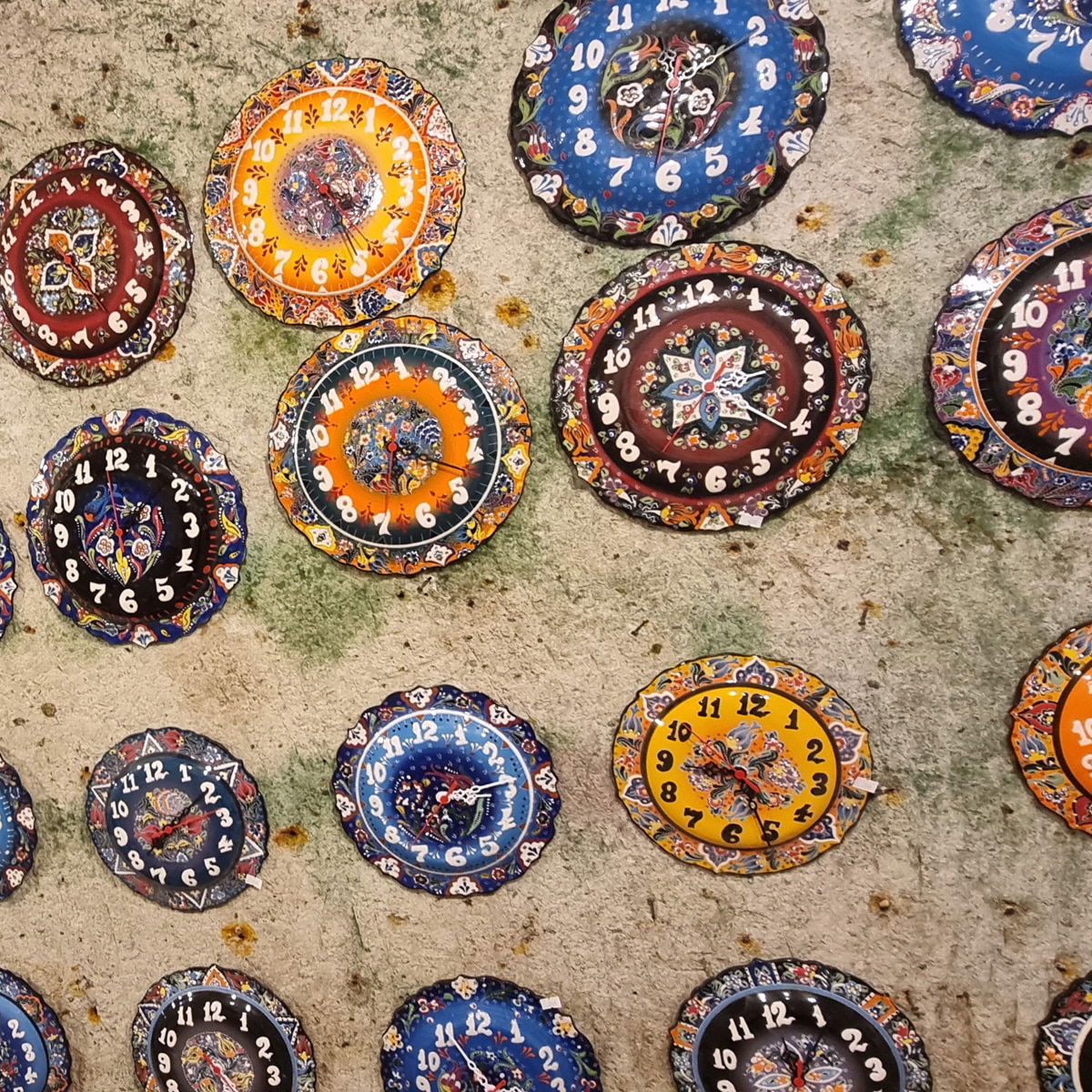
I find that timing can be everything.
Visiting the markets when they’re less crowded, typically on weekdays or in the mornings, means the sellers may be more willing to take their time with me and potentially offer better deals.
Keep in mind, though, that some markets may have different hours, so I check in advance before planning my bargain hunt.
Brands We Use And Trust
Strategies For Effective Bargaining
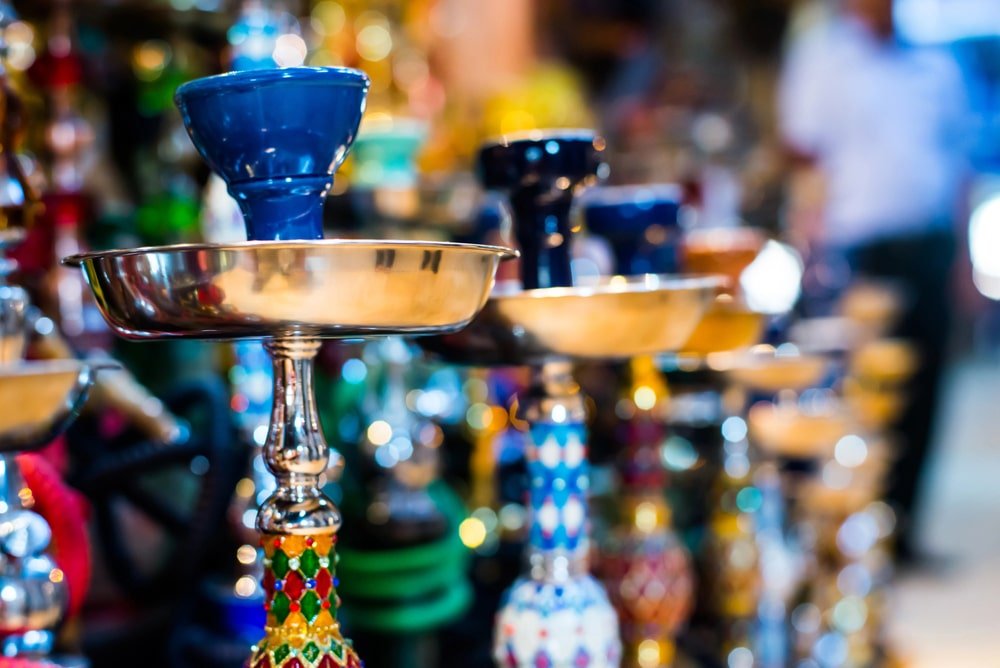
Knowing how to haggle effectively when shopping in the Turkish markets can save you money and provide an enriching cultural experience. Below, I’ll share specific strategies to enhance your bargaining skills.
Starting The Negotiation With The Seller
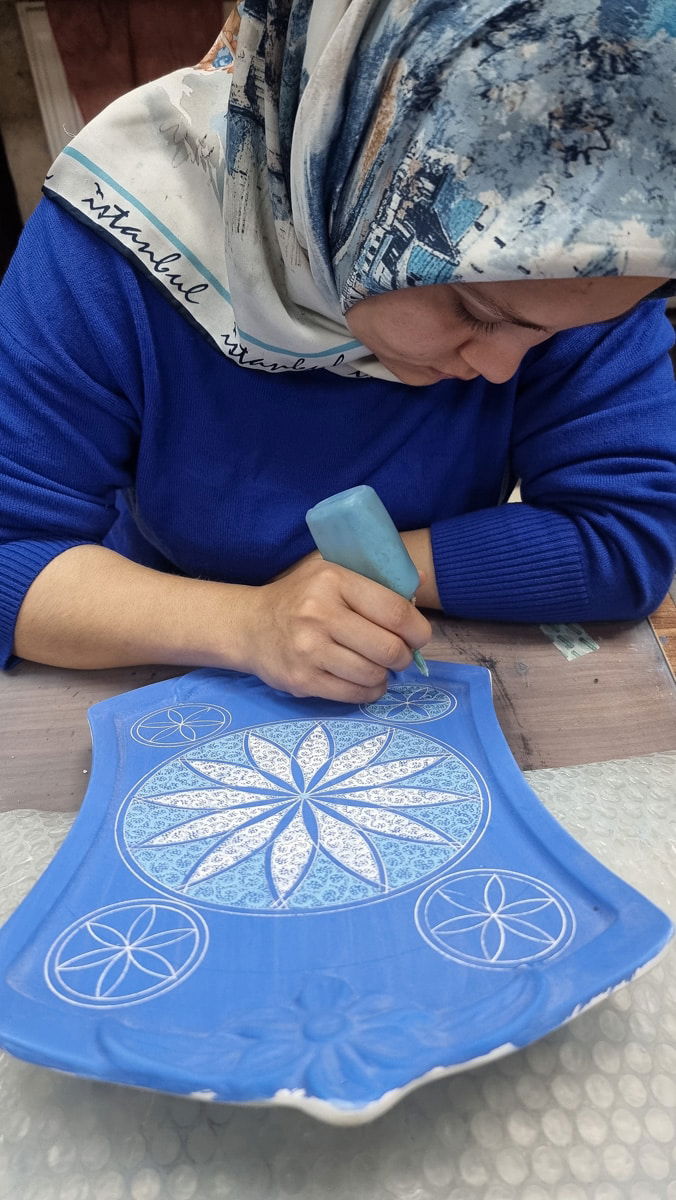
When beginning a negotiation, start with a friendly greeting; this sets a positive tone.
Never accept the first price offered; it’s expected that you’ll counter.
I typically start by offering 50-60% of the initial price, which leaves room for back-and-forth negotiation.
Initial Offer
- Seller’s Price: 100%
- Your Offer: 50-60%
Keep in mind that the starting price should be reasonable enough not to offend the seller but still leave you room to maneuver.
Bargaining Techniques
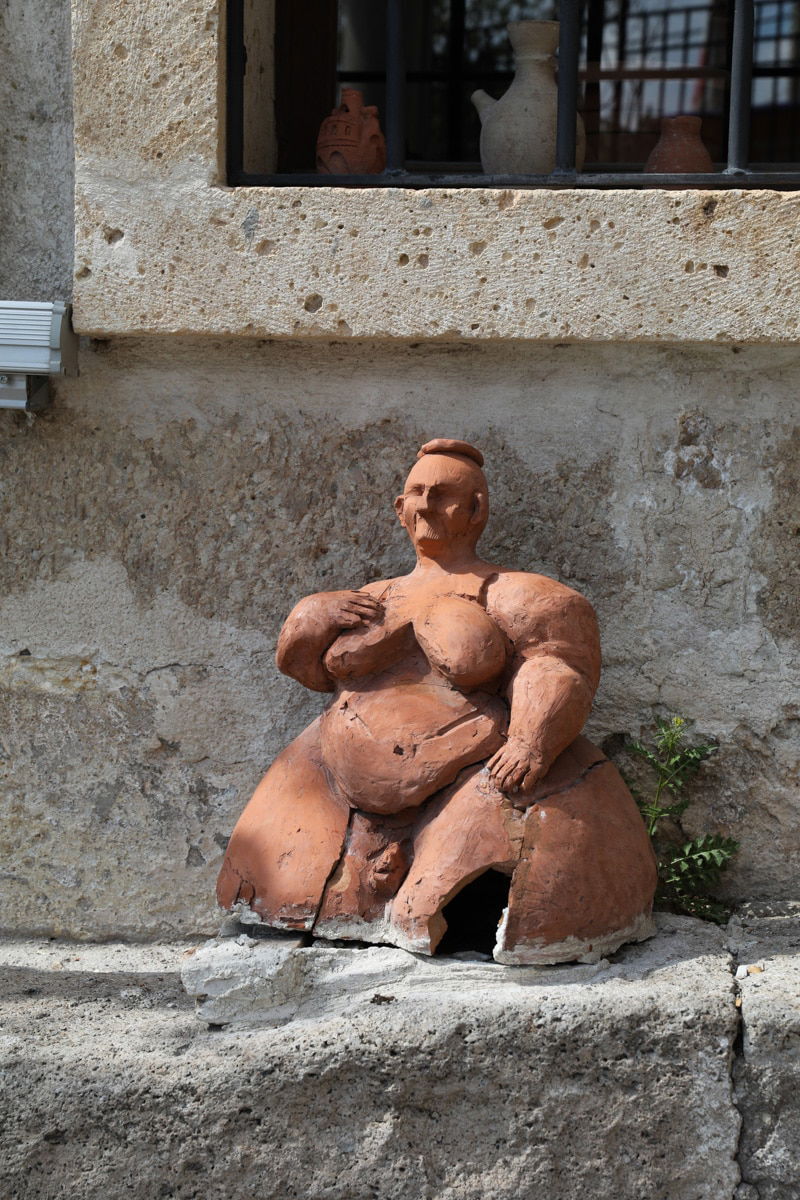
For effective bargaining tactics, use polite assertiveness.
Demonstrate interest in the item but also show willingness to consider alternatives. This subtly implies you’re not desperate for this particular item.
Also, use body language effectively—maintaining eye contact, smiling, and nodding can build rapport.
Key Techniques
- Express interest, but not desperation
- Use body language to your advantage
- The existence implied of other options
Dealing With Pressure
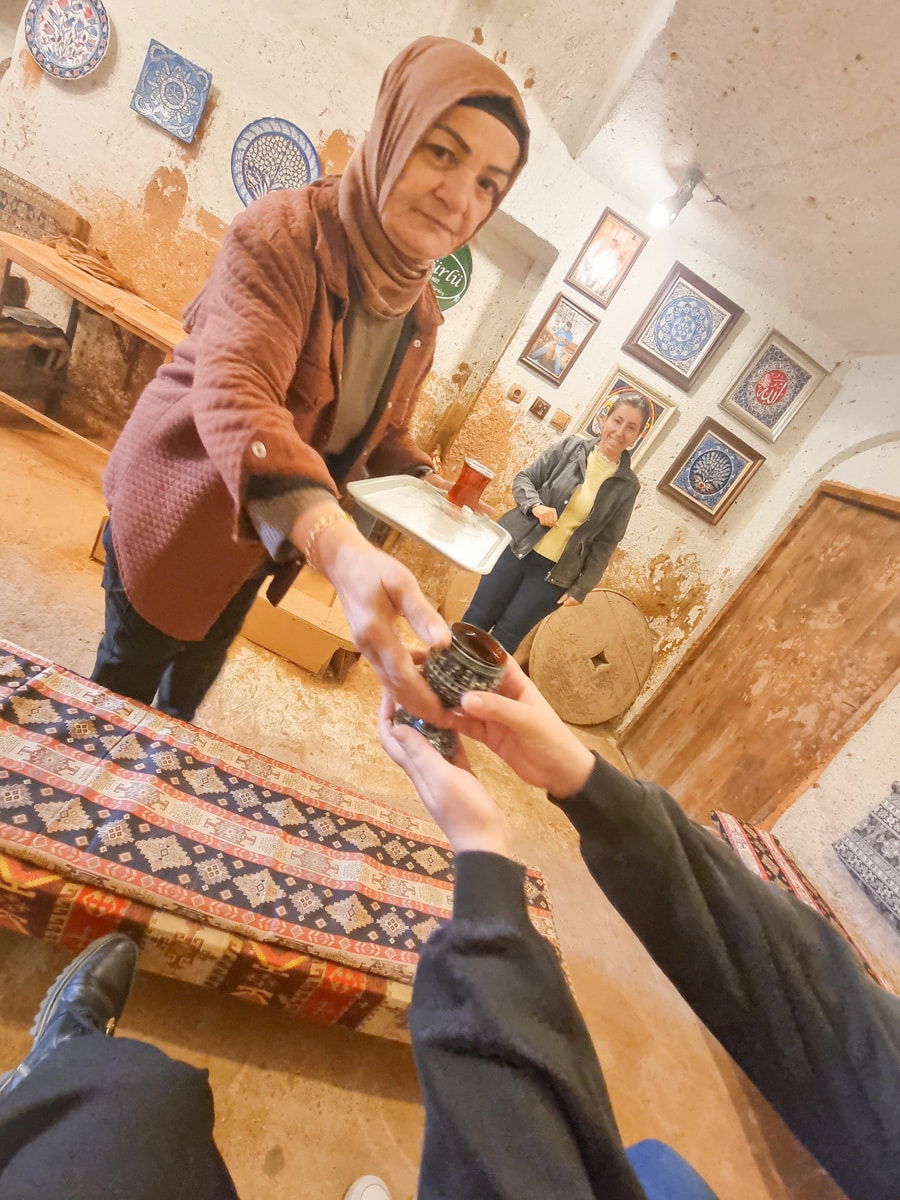
Sellers might apply sales tactics or pressure, so stay calm and don’t feel compelled to buy.
If they sense urgency on your part, they may hold firm on the price.
Remember, the art of haggling is prevalent here—it is a dance of offers and counteroffers.
Pressure Handling
- Stay calm and patient
- Politely resist pressure to rush your decision
- Do not feel like you have to buy anything because you drank some free tea (like I did)
When To Walk Away
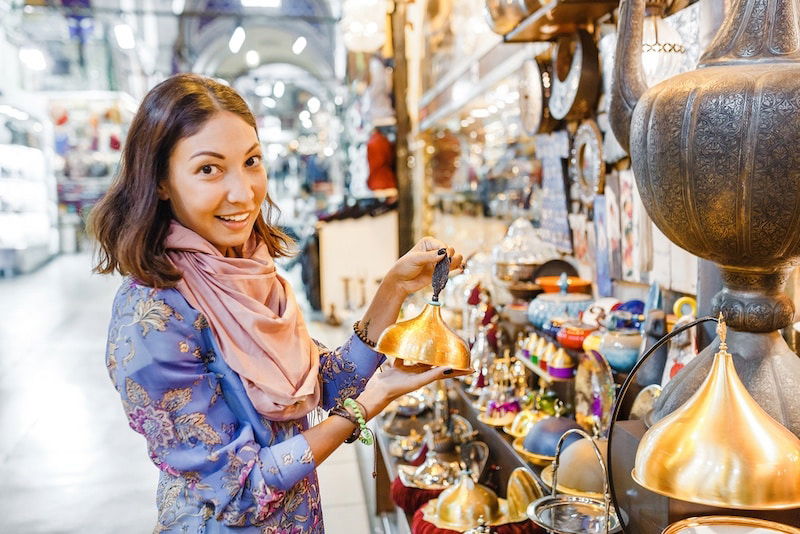
Knowing when to walk away can be as crucial as the negotiation itself.
If you’re far from agreeing on a price and the seller won’t budge, thank them and move on. Often, they might call you back with a better offer.
If not, it’s okay—you’ll find plenty of vendors in Turkey’s markets.
Walking Away
- Politely thank the seller
- Leave the possibility of returning open
Common Pitfalls To Avoid
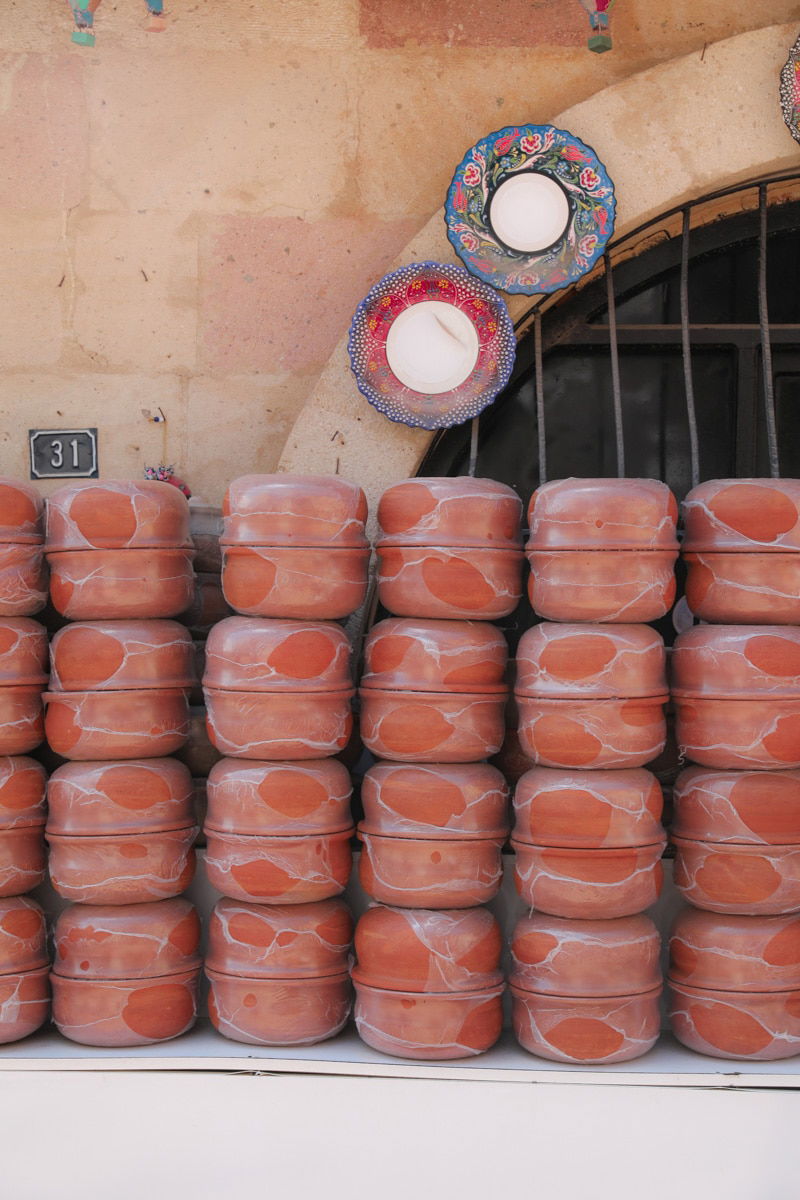
When you’re exploring the markets of Turkey, it’s easy to get swept away by the excitement. To ensure a pleasant haggling experience, I recommend avoiding a few common mistakes.
Overeagerness In The Product
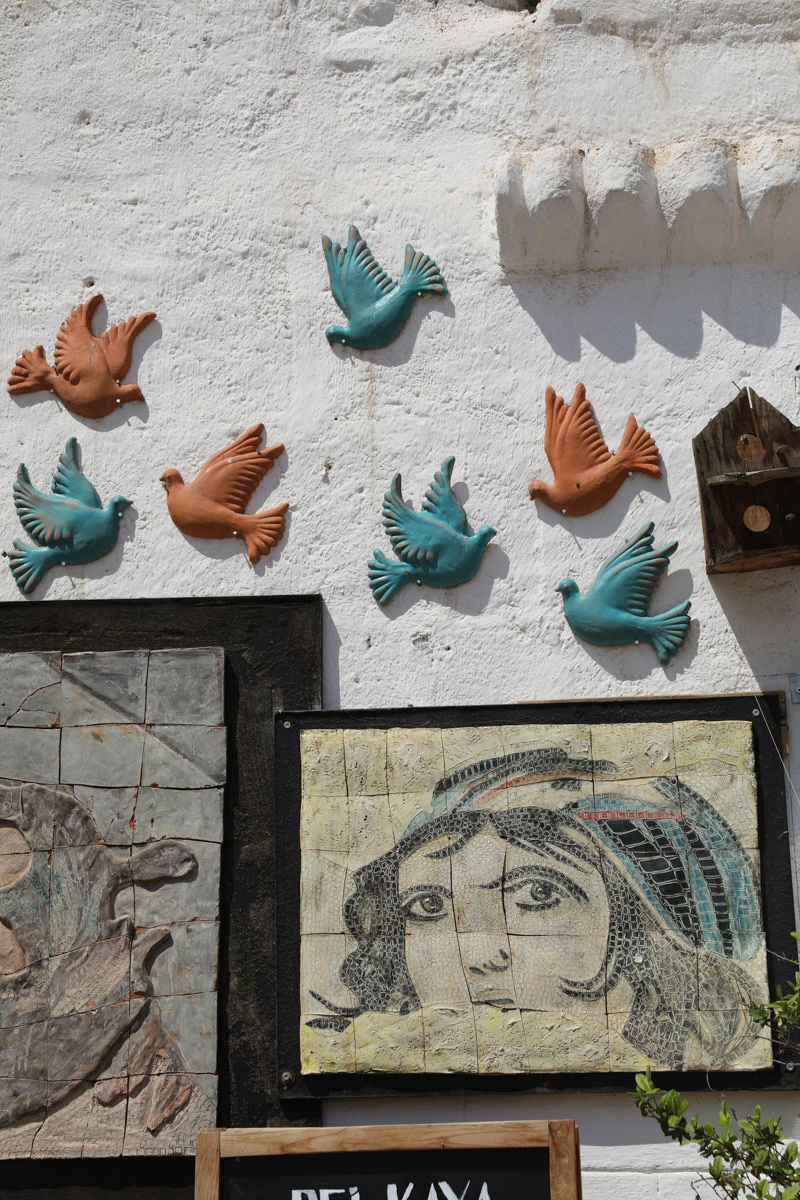
My first piece of advice is to keep your cool.
Showing too much interest in an item can work against you. Vendors can tell when you’ve fallen for a product, and this can result in a higher asking price.
Take a relaxed approach, browse casually, and don’t be afraid to walk away—it’s a powerful bargaining tool.
Lack Of Research
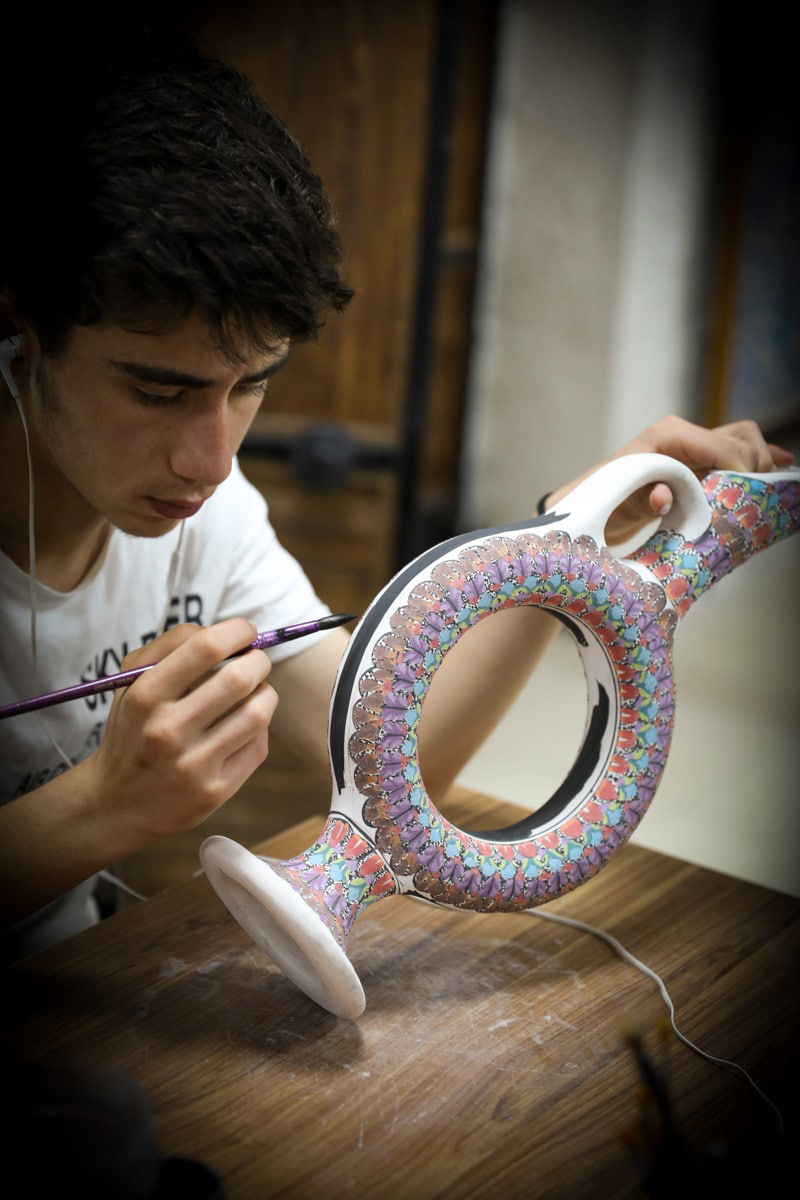
Next, make sure you know the typical costs before you begin to negotiate.
- Read up on average prices of goods you’re interested in
- Familiarize yourself with the quality indicators for specific items like textiles or ceramics
Without this prep, you risk either offending the seller with low-ball offers or overpaying.
Misunderstanding Currency In Turkey
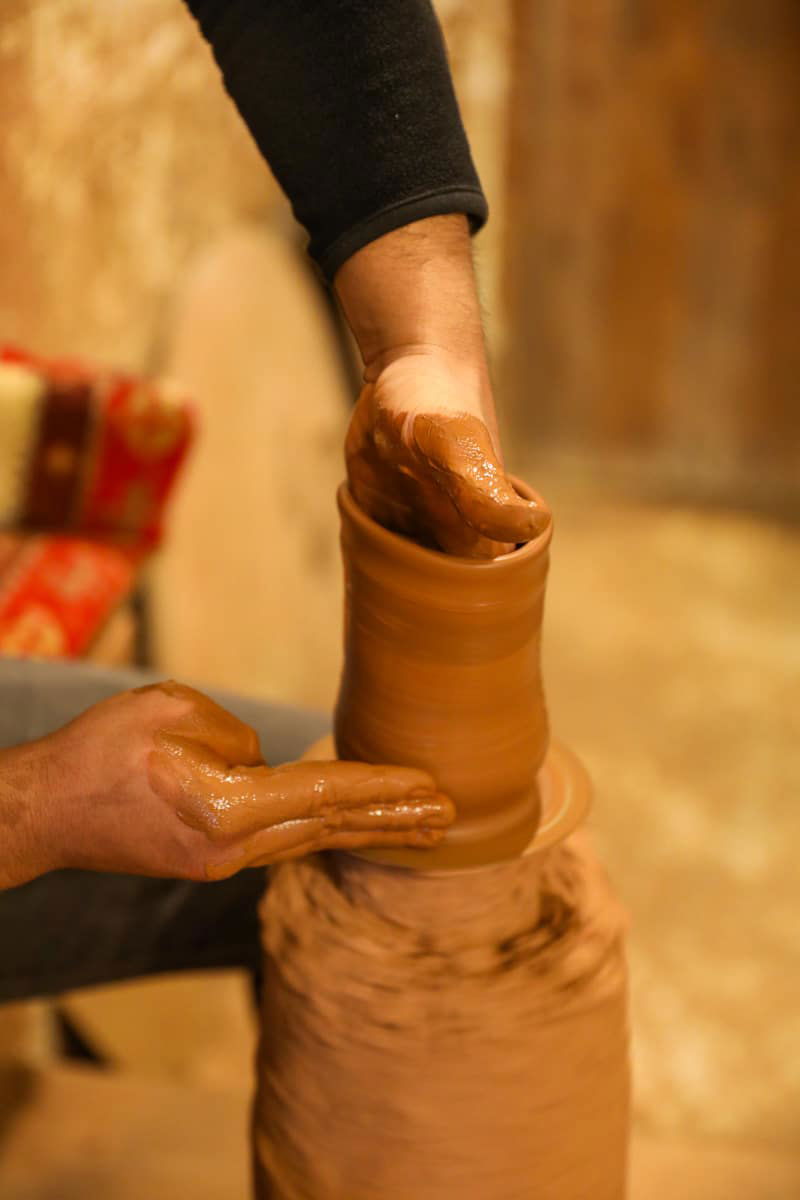
Lastly, familiarize yourself with the local currency, Turkish Lira.
Always ensure you:
- Understand the current exchange rate
- Use your phone to convert prices
- Make sure they charge your card in Lira and euros or dollars
Avoid confusion or mistakes in payment that could arise from not knowing the value of your money in the local context.
Where To Practice Your Haggling Skills
From the labyrinthine alleyways of Istanbul’s historic bazaars to the vibrant markets of Cappadocia and the coastal charm of Izmir, each place offers a unique setting to hone this quintessential shopping skill.
Grand Bazaar In Istanbul
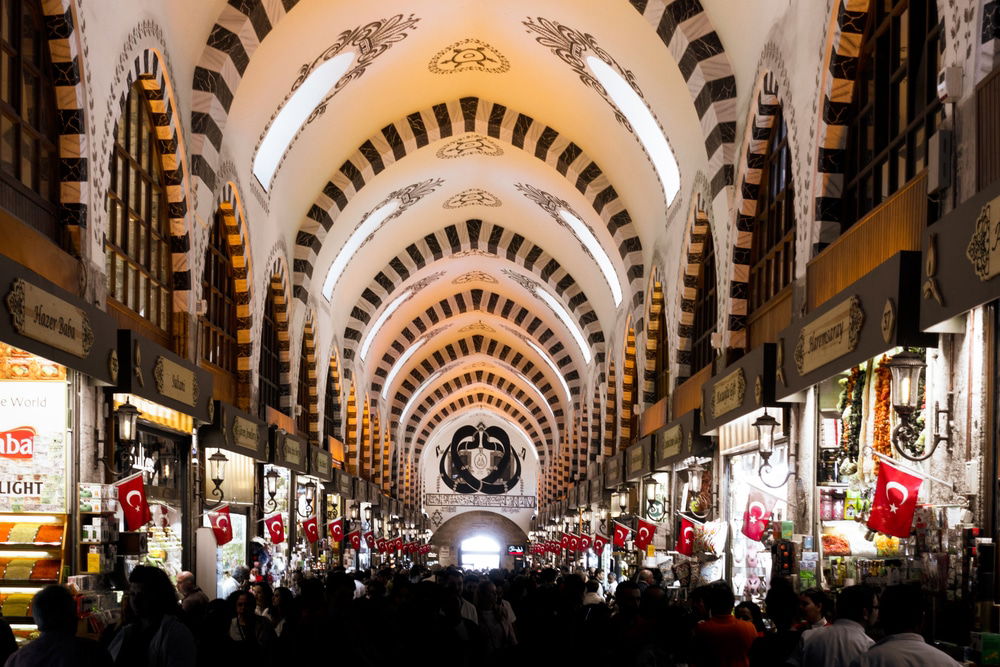
Istanbul’s Grand Bazaar is the ultimate haggling arena.
This sprawling marketplace is one of the world’s oldest and largest covered markets, boasting over 4,000 shops spread out over 61 streets.
Here, you can find everything from intricately handcrafted lanterns to rich Turkish carpets.
Remaining polite yet firm is essential when bargaining with shopkeepers who are seasoned in the art of negotiation.
Local Markets In Cappadocia
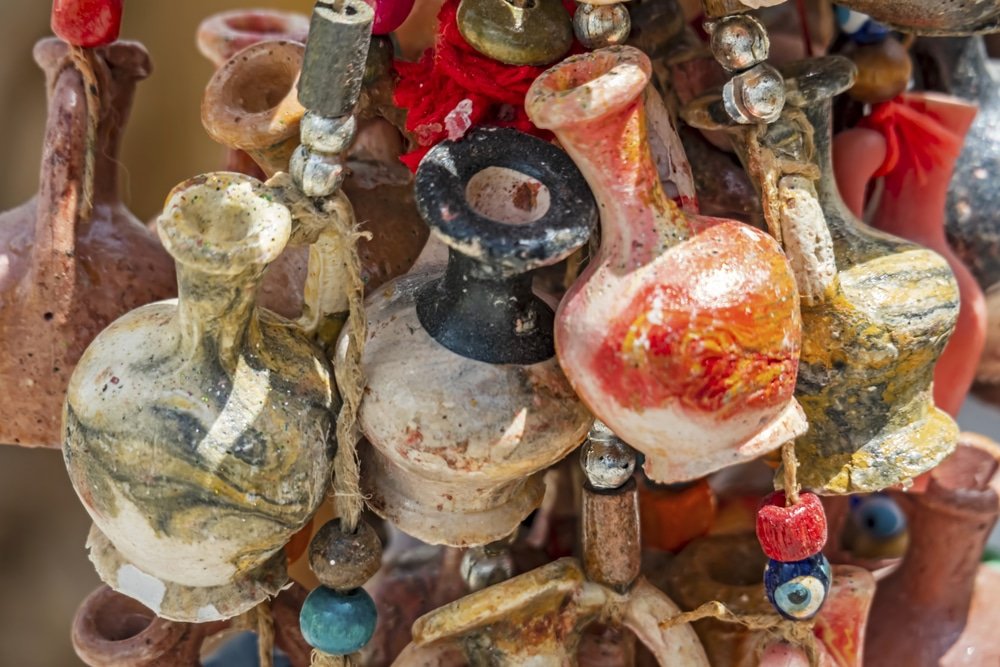
This region is famous for its otherworldly landscape and traditional pottery, so it’s no surprise that local markets are brimming with unique ceramic pieces.
When visiting markets in towns like Göreme and Ürgüp, I’m often greeted with the warm hospitality of the Cappadocian vendors, making the experience about more than just the exchange of money.
Coastal Bazaars of Izmir
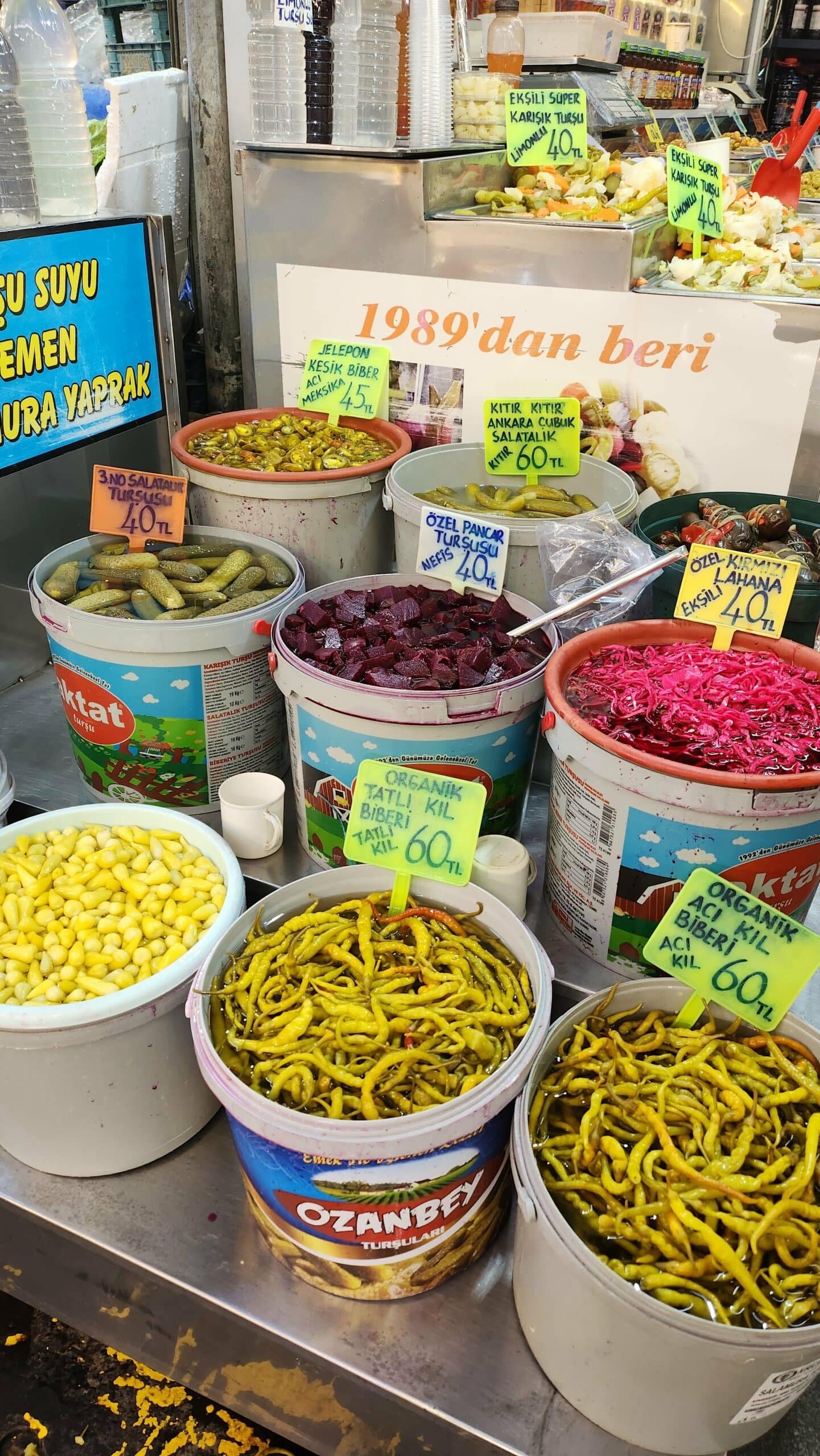
Lastly, the coastal city of Izmir, with its own distinct vibe, offers bazaars where fresh produce and seafood are as abundant as traditional textiles and souvenirs.
Haggle with local fishmongers for the day’s catch, or find that perfect leather pouch to take home.
The bazaars here exude a more laid-back atmosphere, mirroring the seaside lifestyle.
Beyond The Tourist Bargain
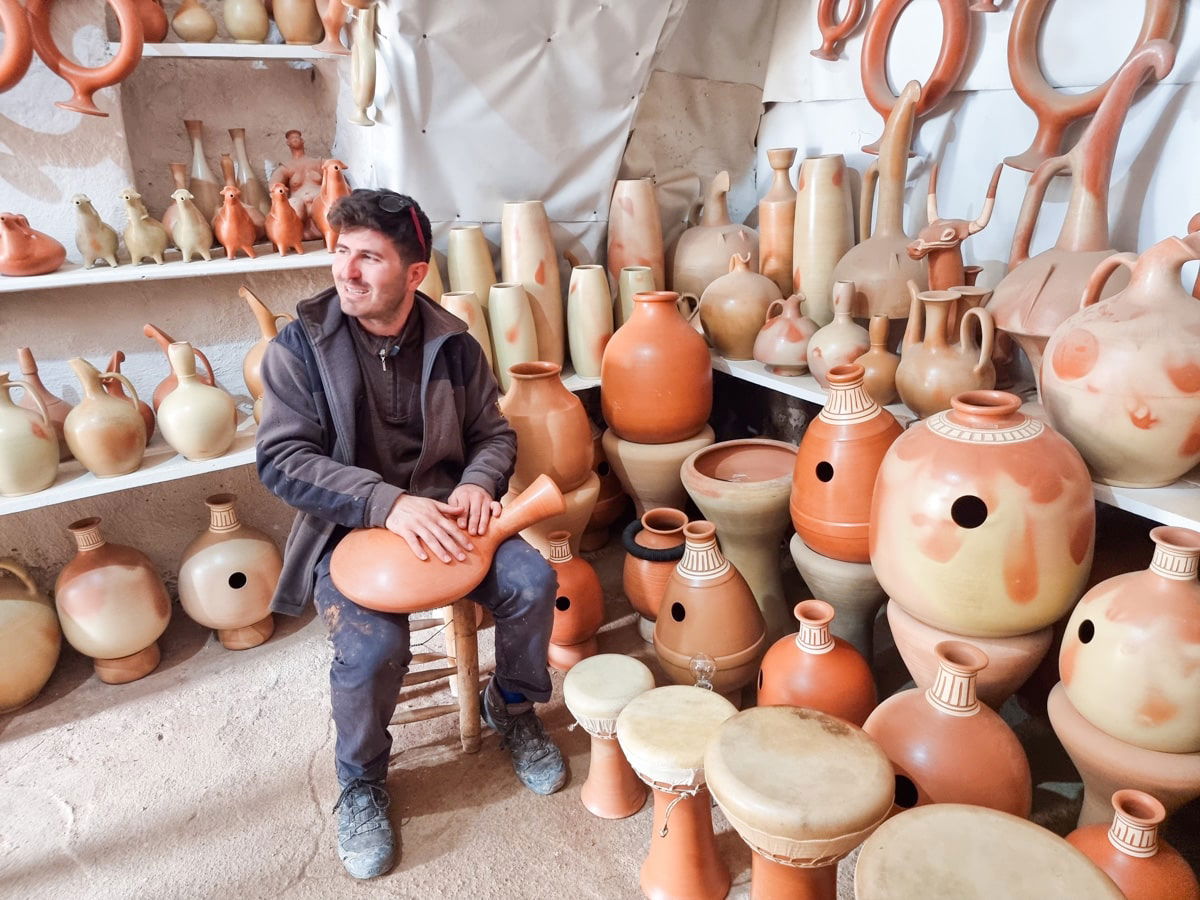
Exploring Turkey’s markets is more than just getting a good deal. Effective haggling involves a blend of cultural immersion, savvy shopping for genuine items, and understanding the ethics of negotiation.
Building Rapport With Vendors
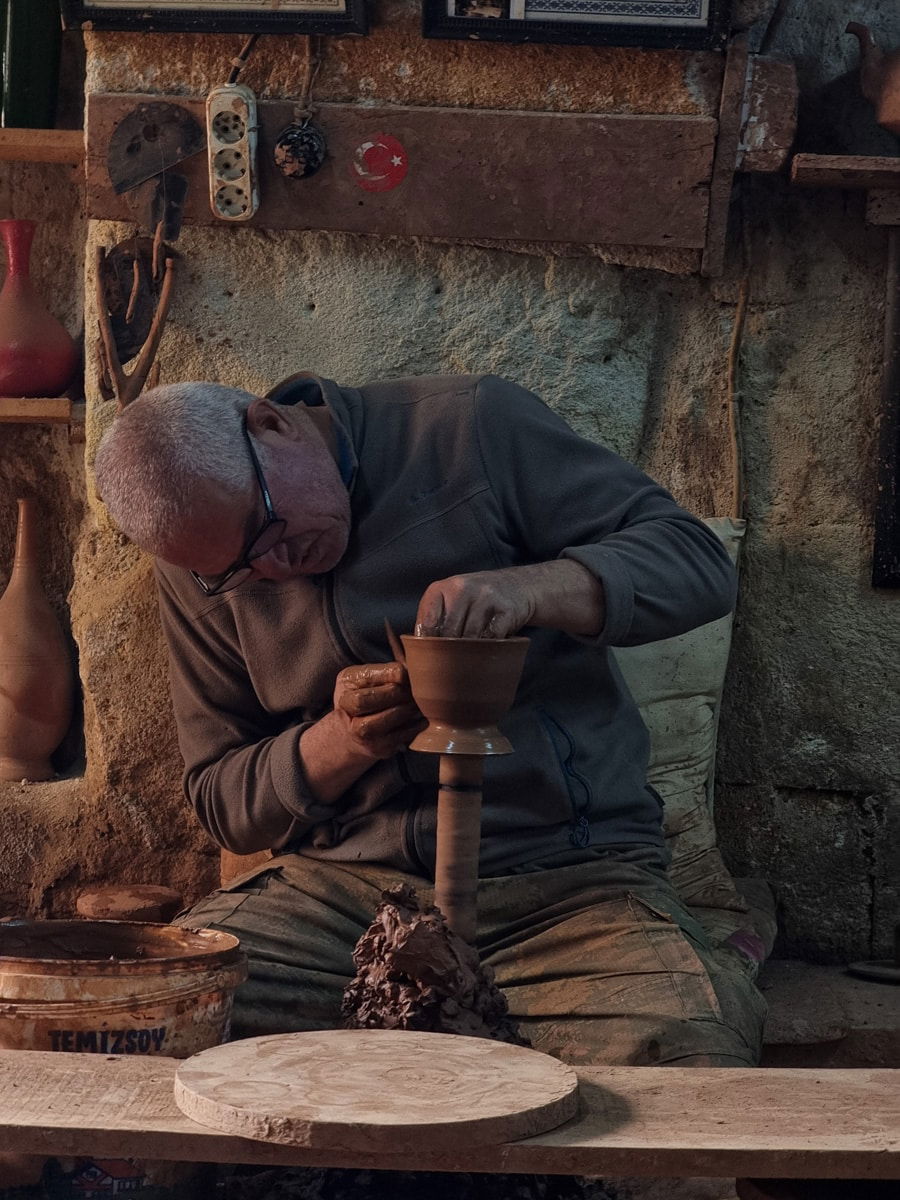
As I wander through the lanes brimming with spices, textiles, and ceramics, I make it a point to greet vendors with a warm smile and “Merhaba” (hello in Turkish).
Taking an interest in their craft and asking questions shows respect and often leads to a more enjoyable bargaining process.
I’ve found that learning a few phrases in Turkish goes a long way in breaking the ice and forging a connection that might even snag me a friendlier price.
Finding Authentic Souvenirs
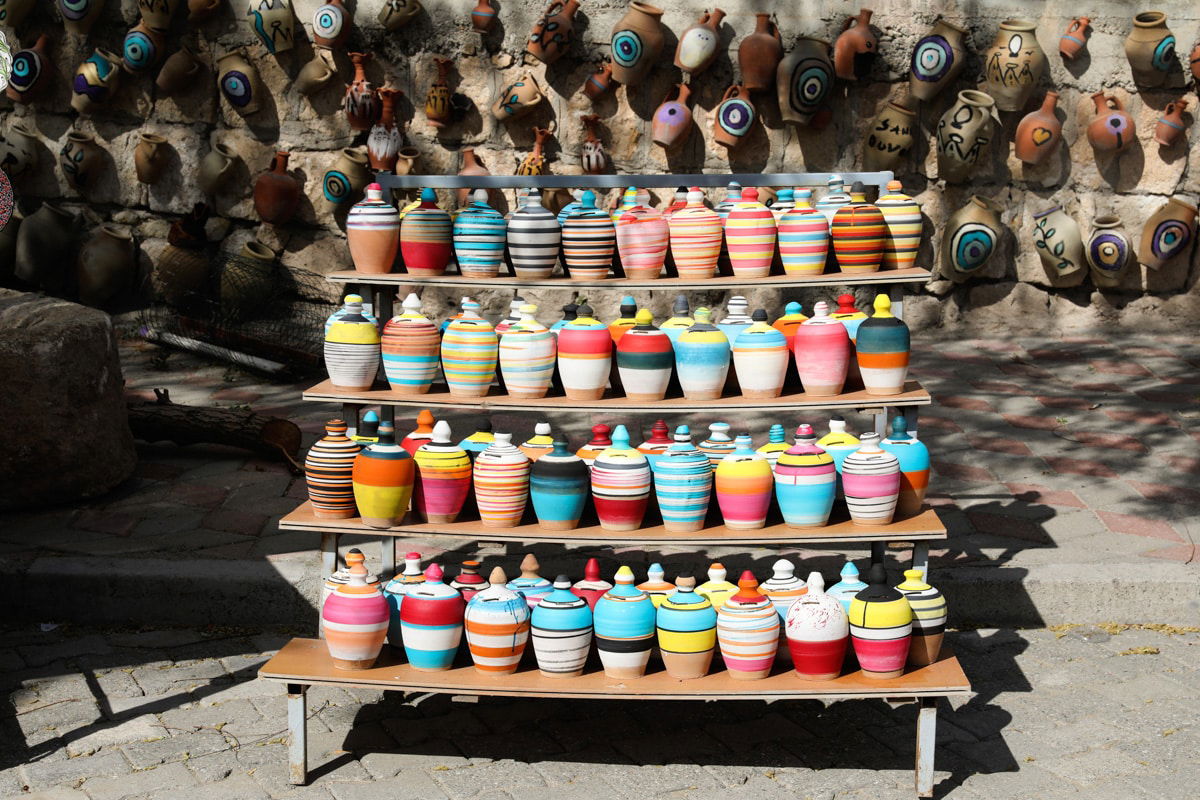
I keep my eyes peeled for the unique and the authentic.
It’s easy to be inundated with the array of souvenirs, but I look for items that have a story—perhaps a handmade copper coffee set or a traditionally woven kilim.
To vet these treasures, I often ask vendors about the origins of their goods or demonstrations of their craft, ensuring that my souvenirs are genuine pieces of Turkish culture.
Ethical Bargaining – Pay A Fair Price
I approach bargaining with the belief that it should be fair and respectful.
Boldly bartering down to rock-bottom prices can potentially disrespect the artisan’s work; hence, I aim for a price that feels like a good deal to both parties.
I remember that this is their livelihood, and my objective is to reach a mutually acceptable agreement that will leave both of us satisfied.
Move This Adventure To Your Inbox & Get An Instant Freebie

No spam. Unsubscribe at any time.
The Role Of Bargaining In The Turkish Economy

When I wander through the old markets of Turkey, I’m immediately struck by the lively banter and negotiation that fills the air—bargaining is simply the heartbeat of commerce here.
This age-old tradition isn’t just about getting a good deal; it’s woven into the economic fabric of the country.
In my experience, bargaining in Turkey supports a dynamic informal economy.
Street vendors, small shop owners, and even exquisite bazaars thrive on the art of negotiation.
Not just for tourists, bargaining is also a daily practice for the locals, affecting everything from fresh produce to handcrafted rugs.
For small businesses, bargaining is crucial; it sets the stage for:
- Building relationships with customers
- Adjusting prices based on demand and supply
- Differentiating their offerings from fixed-price outlets
Moreover, I’ve noticed how bargaining strategies reflect the cultural and social nuances of regions across Turkey.
The friendly haggling dance can be a sign of respect and understanding between buyer and seller, and it’s a practice that beautifully showcases Turkey’s rich tradition of hospitality.
In terms of economic impact, there’s a unique characteristic:
- Cash transactions dominate the bargaining scene
- They often offer a better deal due to avoidance of bank fees
From my own pocket, I’ve learned that paying in cash can often significantly lower the price of an item. Cash is king.
- Best Shopping Malls In Istanbul
- Best Places For Shopping In Istanbul & What To Buy
- Best Souvenirs To Buy In Turkey
- What Currency To Use In Turkey
- Visiting Turkey On A Budget
- Guide To Hiking The Lycian Way
- Myths & Misbeliefs About Turkey
- Must See Sites In Sanliurfa
- 5-Day Southeastern Turkey Itinerary
- Turkey’s Black Sea Coast Paradise – Amasra
- Mount Nemrut – UNESCO World Heritage Site
- Unbelievably Stunning Spots To Visit In Turkey
- Do People Speak English In Turkey?
- Airalo eSim Review – Mobile Data In Turkey & Beyond

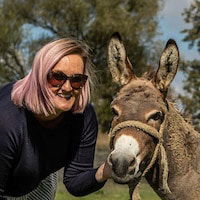
Thank you so much for your time and effort it’s a big help having all this tips handy while travelling